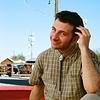Take a photo of a barcode or cover
32 reviews for:
The Fragile Earth: Writing from the New Yorker on Climate Change
David Remnick, Henry Finder
32 reviews for:
The Fragile Earth: Writing from the New Yorker on Climate Change
David Remnick, Henry Finder
challenging
informative
reflective
medium-paced
challenging
informative
reflective
slow-paced
An engaging anthology of essays. Many in a reflective sense, issues we’ve know about for decades and yet these voices rang hollow in the halls of decision making. There are some glimmers of hope for potential actions and paths forward, though none without consequence, as we’ve crossed a few too many thresholds to completely avert climate change. Kolbert puts it bluntly in the afterword, “At this point, there's
simply no possible future that averts dislocation. Billions of people will have to dramatically change the way they live or the world will change dramatically or we will see some combination of the two. My experience reporting on climate change, which now spans almost twenty years, has convinced me that the most extreme out-comes are, unfortunately, among the most likely. As the warnings have grown more dire and the consequences of warming more obvious, emissions have only increased that much faster.”
A few more good quotes:
- “If our way of life is ending nature, it is not too radical to talk about transforming our way of life.”
- “Life is precarious, and you can crush it by holding on too tightly, or you can love it…Even in a world of dying, new lives co tiniest to be born.”
- [On managed retreat], “not everybody is going to live where they are now and continue their way of life, and that is a terrible, and emotional reality to face.”
- “Climate change is not so much a reduction in productivity as a redistribution, and it’s one in which the poorest people on earth get hit the hardest and the rich world benefits.”
It’s hard to finish this collection and not walk away sensing the doom and gloom is already on the horizon. I suppose the only respite is we just have to keep moving forward because there is no other way. Finding the solace in the next day. And if we can make things a little better along the way then let’s do it wholeheartedly.
challenging
informative
slow-paced
The Fragile Earth: Writing from the New Yorker on Climate Change
“Like the future, dystopia is already here. It's just unevenly distributed “
This behemoth of a collection of New Yorker essays from the last 50 years has something for everyone, if you’re patient enough to dig for it. The essays here bounce from climate change science, geology, environmentalism, and animal welfare, to urban development, the use of weather in literature, and wildfire containment tactics. Like most collections that bring together different authors, some of the entries will leave you feeling colder than others – in my case, the first several chapters were borderline Ambien-like, and it wasn’t until reading “Writer in the Storm,” that I gave it my full attention.
I think most people would benefit from picking up this collection and going straight towards the pieces that align with their interests. As a starting point, these were my favorite ones:
- “Writer in the Storm” (Weather in Literature)
- “The New Harpoon” (Whale Hunting; Native Traditions v. Development)
- “The Sixth Extinction” (Animal Extinction)
- “The End of the World” (Jonathan Franzen’s Trip to Antarctica)
- “The Day the Great Plains Burned” (Coverage of the Starbuck Fire)
- “Green Manhattan” (The Environmental Benefits of Being a City Girl)
Also, this interview with the editor of the book was very informative and gives you an idea of what the New Yorker was trying to achieve with this publication:
https://www.theguardian.com/books/2021/apr/18/david-remnick-new-yorker-editor-no-vaccine-for-climate-change-fragile-earth
challenging
informative
sad
slow-paced
Some good stuff! But mostly this made me sad at how slow (but sweeping) the conversation on the climate crisis has evolved through the years. Like, goddamn, we needed to have such a more intense conversation in the 80s about the crisis because #ExxonKnew for decades! That shouldn't've been the beginning of the climate talks, it should have been the middle. I'm sure that a lot of these fire-based articles here will feel the same very soon. Australia, California, they've changed so much in fire regimes since this essay collection started collectin' pieces! Fuck! I think I need to read more specialized pieces, but this was good to catch up on -- see where the New Yorker is at generally.
challenging
hopeful
informative
inspiring
reflective
relaxing
sad
slow-paced
dark
informative
reflective
slow-paced
dark
emotional
informative
sad
tense
challenging
informative
reflective
sad
medium-paced
Amazing to read articles from the 80s/90s/00s and realize how little has changed in terms of our fossil fuel consumption and humanity’s general outlook on climate. Hard to be hopeful about this planet’s future.
One might be tempted to describe this book as "thought-provoking," but that would be far too inane for a collection like this. This book gave me straight up climate disaster nightmares because the state of the world, the state of humans and the climate, is horrifying. Occasionally, the writers would offer a glimmer, ever so faint, of hope for the future of climate change, but mostly this stuff is pretty bleak. We are probably, definitely, really screwed and the number of (separate) essays that mocked the idea of American exceptionalism and ingenuity pulling us through any climate catastrophes is telling. It's kind of like maxing out a credit card and assuming future you will make the money up to pay it off, even though you don't have the means to right now? Seems like if it's not good personal finance advice, probably also not good climate change advice? There are some really good ideas here though and I liked how well-written each essay was. The ones about wildfires and animal agriculture were fascinating, as was the one about how New York City is actually the most efficient and feasibly environmentally-friendly way to accommodate 7 billion people. (Who knew??) Highly recommend this if you are looking for an informed, bone-chilling thrill.







